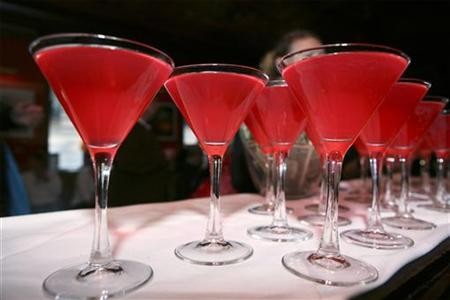Many people believe that drinking water or consuming a meal right after a heavy drinking session will prevent a hangover later. However, a new study reveals that only drinking less alcohol will help to prevent symptoms such as headaches, nausea, and drowsiness the next day.
The research team included Dutch and Canadian researchers. Their findings will be presented at a conference held in Amsterdam, Netherlands.
The study's included 826 Dutch students. They were asked which methods they used to reduce hangover symptoms.
Researchers wanted to learn if hangovers could be relieved, or if people's genetics made them immune to it. They learned that the consumption of water and food were not effective treatments.
During the study, 54 percent of the participants ate food after consuming alcohol, which included fatty food and heavy breakfasts. Their goal was to keep a hangover at bay.
Over two-thirds of the participants also drank water during their alcohol drinking, and over half drank H20 just before bedtime. Hangover prevention was also the goal.
The water drinkers felt a little better than the volunteers who had not drunk water. However, it produced no major difference in their hangover's intensity.
Researchers continued their research to examine the fact that about one-fourth of alcohol drinkers claim that they never get hangovers. About 80 percent of those in the study had a blood alcohol level equal to two big glasses of wine, according to The New Zealand Herald.
Thus, they questioned about 790 Canadian students. It was regarding their drinking habits and hangovers during the previous month.
They learned that prevention is indeed better than cure. The students who did not have a hangover drank less alcohol than the amount that would have produced the medical condition, according to BBC.
Among heavy drinkers with a blood alcohol level over 0.2 percent, immunity to hangovers was not high. In fact, few volunteers had it.
Lead author Dr. Joris Verster is from Utrecht University (Netherlands). He explained that the studies showed that drinking more increases the chance of a hangover.
Dr. Verster noted that scientists have not discovered the cause of hangovers. They only know that dehydration and the drinker's immune system are part of the condition.
This video explains what causes a hangover:



























